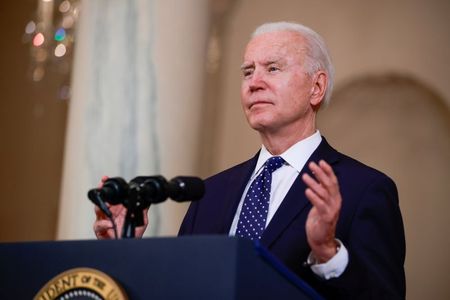US lobby groups gear up to fight Biden corporate tax hikes

US business lobbying groups are preparing to stop new corporate tax hikes in a spending bill linked to the bipartisan $1.2tr (£870bn) infrastructure deal.
As reported by Reuters, the US Chamber of Commerce, the National Association of Manufacturers, the National Retail Federation and other wealthy lobby groups plan to sway a handful of Democrats against the bill, arguing that higher corporate taxes will result in fewer jobs.
Democrats aim to pass the “reconciliation” bill, expected to contain new social spending and tax hikes, without Republican votes.
Rachelle Bernstein, chief tax counsel for the retail group, admitted that “we don’t know what’s in that package” but “we don’t think it is good to use a corporate tax increase to finance spending”. Her group has spent $1.5m on lobbying in the first quarter of 2021, according to watchdog OpenSecrets.org.
Business groups had hoped for the bipartisan infrastructure bill and partisan tax and spending bill to be considered separately, betting that this would make it easier to kill the latter bill.
However, House Speaker Nancy Pelosi insisted that the two bills pass in tandem.
Jon Lieber, U.S. managing director for the Eurasia Group political risk consultancy and a former economic adviser to Senate Republican Leader Mitch McConnell, told Reuters the move increases the likelihood that infrastructure spending turns into a partisan bill. It would then require the support of every Democrat in the Senate and almost all House Democrats.
Lobbying groups are also publishing research disputing the Biden administration’s claims that the tax and spending plans will create millions of jobs. A study by accounting firm EY, financed by the National Retail Federation, claims US GDP will be reduced by $72bn annually and 700,000 jobs will be lost.
However, independent research from Oxford Economics estimates public investments would create an additional 2m jobs by the end of 2024 and long-term potential output growth would be 0.1% above baseline forecasts after ten years.
Recent polls suggest taxing corporations and wealthy executives to pay for public spending is overwhelmingly politically popular. Polling from Reuters/Ipsos found that 65% of Americans would support higher taxes on the wealthy.
However, corporate tax revenue as a source of US federal funding has fallen from 40 per cent in the 1940s to 7 per cent today.
Republicans recently cut the headline corporate tax rate from 35 per cent to 21 per cent in 2017.
While President Joe Biden has proposed raising the U.S. corporate tax rate to 28 per cent, the largest US companies would still see an effective tax rate of 21 per cent thanks to deductions and credits in the U.S. tax code.